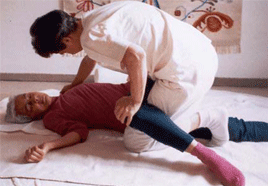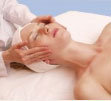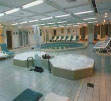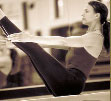
Massage

Applying force or throb to the soft tissues of the body, including muscles, connective tissue, tendons, ligaments, and joints is called massage. A type of rehabilitation, massage could be applied to parts of the body or repeatedly to the full body, to treat injury, alleviate mental trauma, handle ache, develop circulation and also mitigate nervousness. Where massage is used for its bodily and for mental profits, it might be termed "beneficial massage therapy" or controlling therapy.
A Massage analyst evaluates patrons by performing the range of action and muscle testing and suggest treatment plans; it cares soft tissue and joints of the body through soft tissue treatment, hydrotherapy, remedial exercise programs and also for customer self assist programs; offers routes of treatment for medical conditions and wounds or other wellness protection; maintains records of treatments given; and might work with few other healthcare professionals as piece of a team, which assists an environment that endorses health and wellness, in general.
In profitable settings, massage methods absorbs the customer being delighted lying down on a massage table or may be in a massage chair, or sometime also on a mattress on the floor. Although the massage theme is usually naked, the body some time may be "swathed" with towels or leafs. This also assists keeps you warm. In some authorities it is necessary that particular areas such as the genitals on both the sex and the breast/nipple area on women should be swathed every time. Because of the essential bodily contact between the practitioner and the patron sexual aggravation is not odd, while in most cases of massage this is accidental. Massage could also be a piece of love making for a lot of pairs (see erotic massage), and often takes place in the background of sex work.
The action might start with the customer face up or down in the first part of the session: the client then rolls over (draped by the towels or sheets) for the second half of the session.
Massage Basics
Communication :
For a successful massage it is very important to have good communication. Usually as a part of every good spa the customer is encouraged to converse the treatment type they are expecting. For instance, hobby or ache reprieve, complete body massage or concentrate on an exact area, the quantity of force that is very comfortable, chosen techniques, and previous medical history and present bodily state.
Pressure : encumbered
The massages are essentially subjected to pressure that ranges form exterior to deep. The ideal quantity for valuable massage is when the receiver experiences some distress in a positive way that turns on the body's natural remedial response. If the pressure is impossible then the result might be another shock to the body. Some of negative discomfort is also possible after the massage is over but it need to be acceptable, and if it lasts more than two days it means the massage was too deep.
Types Of Massage
There are well over 150 special types of massage therapy. Various styles of massage have now developed from a number of sources.
Breema bodywork is always performed on the floor with the recipient fully clothed. It consists of lyrical and gentle leans and stretches that lead to deep relaxation, increased vitality, and also stimulation of the self-healing processes of the body. Sessions could be any length of time, although 50 minutes is common. There are some self-Breema exercises. The essence of Breema is articulated in the Nine Principles of Harmony. The Breema Center is placed in Oakland, California, and there are Breema practitioners and instructors in many locations in the world.
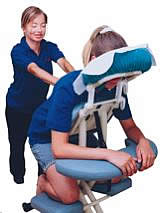
A Chair Massage is, by far, the most suitable method of massage therapy. Chair massage lasts for about 15 minutes and is done in full cloths. A chair massage promotes improves circulation and muscle stimulation. This form of massage reduce tension in the back, neck and in shoulders; thus providing deep relaxation. A swift chair massage refreshes the anatomy and encourages in the general well being. Chair massages are also beneficial, mostly because chair massage practitioners would sometimes pay work or house calls. Chair massage could also be found in hotels, airports and convention centers amongst few other places.
Tui Na is a form of Chinese massage; it is similar to Zhi Ya, but focusing more on pushing, stretching and kneading the muscle.
Chinese Zhi Ya Massage :
Zhi Ya is a form of Chinese massage done through acupressure. It is similar to Tui Na massage apart from it focuses more on pinching and pressing at acupressure points.
Deep Muscle Therapy :
Deep muscle therapy (created by Therese Pfrimmer), is a massage method, which focuses on using a specific set of movements applied to all muscles and intending on all layers of the muscle that have become depleted of their usual blood and lymphatic flow. This method aims to reinstate the circulation with its healing properties to the cellular level. Deep muscle therapy is broadly used to treat the following ailments: carpal tunnel syndrome, neck and back pain, headaches, poor circulation, whiplash, and many more.
Deep Tissue Massage :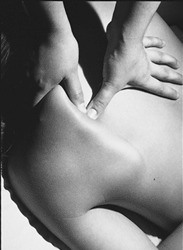
Deep tissue techniques are usually designed for more focused massage work. Working an exact joint, muscle or muscle group, the practitioner could access deeper layers of the soft tissue. Starting apparently and easing into the depth of the muscle gradually often allows more movement. This is the suggested approach in this modality as each person experiences pressure differently. If the pressure is applied too intensely or too quickly, the muscle might tighten to protect that area, and unnecessary damage or irritation could also be induced. Very little lubricant is used, as the pressure doesn't normally travel much over the skin.
Erotic Massage :
Erotic massage is a form of massage that has the genitals and leads to sexual arousal and (sometimes) orgasm. It is widely done by couples as part of lovemaking. Also practiced commercially.
Also known as reflexology, foot massage, as done by the Chinese
is performed in the milieu of chi, in that each spot on the exclusive
of the foot corresponds to an internal organ, and the practical
therapy is healing to one's overall well being. The theory supposes
that an illness of an internal organ would be associated with the
nerve ending on the sole of the foot.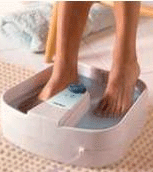
Before the massage, the patient's feet are fully soaked for about ten minutes in a footbath, usually a dark colored solution of hot water and Chinese herbs. The massage therapist uses good amounts of medicated cream, to moisturize the foot and to give lubrication. The knuckles on the therapist's hand are generally used to give a hard and smooth applied for the massage. As pressure is applied to the sole, theory holds that a fit patient need not feel any strong pain. Painful spots, reflexologies believe, reflect illnesses in other parts of the body. The practitioner rubs and massages the painful spots to break down bumpy spots and accumulated crystals and increase circulation.
The ailments are healed when the aching spots of the sole are treated and detached by massage. Based on this theory, some shoe facing are made with pressure points to excite the soles of the feet to help better health of the overall body. The nature of these "crystals" has yet to be clarified or demonstrated methodically. Regardless of the actual association of reflexology to inner organs, many enjoy it for the mix of motivation and relaxation.
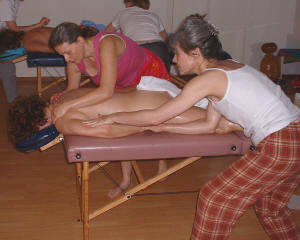
Lomilomi — Traditional Hawaiian Massage :
Lomilomi (meaning massage in Hawaiian) is an antique art from the Hawaiian curative specialists. They were taught their art over 20 years and got their last instructions from their master on his deathbed. Today there are many styles of Lomilomi, the main ones starts the style of Big Island (Lomilomi Bis Island style) that were passed on by Aunty Margaret Machado, and Maui style form Uncle Kalua Kaiahua. On the island of Kaua'i, Kahu Abraham passed on what is today known as Kahuna Bodywork (TM) or the temple style lomilomi. Books: Hawaiian Lomilomi - Big Island Massage by Nancy S. Kahalewai Lomilomi Hawaiian massage.
MA-URI Massage :
MA-URI is a new form of massage brought by Hemi Hoani Fox in 1990, in his cites as its roots Hawaiian Lomi-Lomi Nui dance, claiming increased alleged energy flow within the body and mind. Focus is internal, upon breathing, aim, and also concentration. Claimed benefits have mental and physical health. Study and ad-vocation is chiefly carried out at the MA-URI Institute, headed by Hemi and Katja Fox. It is at present very difficult to find practitioners, though this might change, as it grows more popular.
 Myofascial Release :
Myofascial Release :
Myofascial Release refers to the physical technique for stretching the fascia with intends to balance the body. Injuries, stress, trauma, and poor posture could cause restriction to fascia. The goal of myofascial release is to release fascia limit and restore its tissue.
Myoskeletal Alignment Technique :
Myoskeletal Alignment Technique (MAT) recognizes postural bends to improve and stops pain conditions. Proprioceptive Neuromuscular Facilitation (PNF) and myofacial methods are used to lengthen tight/facilitated muscles while fiber activation techniques quality weak/inhibited muscles. Erik Dalton developed MAT.
 Neuromuscular Therapy :
Neuromuscular Therapy :
Neuromuscular Therapy (NMT) is used for pain release and specific problems. Structural and postural imbalances are recognized through an initial postural assessment. These are then addressed through methodical and site specific massage. NMT lessens pain, tension, postural imbalance, and lengthens and strengthens tissues. Paul St. John developed NMT.
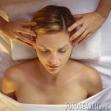
Scalp Massage :
In some barber shops in Hong Kong, scalp massage frequently lasts 30 minutes to 45 minutes in shampooing of the hair.
Shiatsu :
Shiatsu is a form of Japanese massage based on the acupressure. It is uncertain whether it is created from Chinese Zhi Ya.
Hot Stone Massage or LaStone Massage Therapy :
Massage in which hot or cold stones, generally basalt or marble, are used to massage the body. Read More...
Structural Muscular Balancing :
It is gentle and successful technique, which releases chronic contraction in the muscles. The nervous system is activated to release contractions through compression applied to muscles placed in a shortened position.
Swedish Massage :
This style exploits long, flowing strokes, frequently but not necessarily
in the direction of the heart. Swedish massage is planned to increase
circulation and blood flow. There are six essential strokes: effleurage,
petrissage, rubbing, tapotement, density and  vibrations.
Oil, cream, or lotion is applied on the skin to lessen friction
and let smooth strokes. This style of massage is usually credited
to the Swedish fencing master and aerobics teacher Per Henrik Ling
(1776-1839). However, it was in fact the Dutch practitioner Johan
Georg Mezger (1838-1909) who accepted the French names to denote
the basic strokes under which he has systemized the massage as we
know it today, as Swedish are classic massage. Somehow, the term
Swedish Movement System was transposed to Swedish Massage System
sometime in the second half of the 19th century. Ling's system was
actually the Swedish Movement System or Swedish Gymnastic Movement
System. This might be how he has become wrongly linked for so long
with Swedish massage
vibrations.
Oil, cream, or lotion is applied on the skin to lessen friction
and let smooth strokes. This style of massage is usually credited
to the Swedish fencing master and aerobics teacher Per Henrik Ling
(1776-1839). However, it was in fact the Dutch practitioner Johan
Georg Mezger (1838-1909) who accepted the French names to denote
the basic strokes under which he has systemized the massage as we
know it today, as Swedish are classic massage. Somehow, the term
Swedish Movement System was transposed to Swedish Massage System
sometime in the second half of the 19th century. Ling's system was
actually the Swedish Movement System or Swedish Gymnastic Movement
System. This might be how he has become wrongly linked for so long
with Swedish massage
Tantramassage (Tantric Massage) :
Original Tantramassage is a latest form of massage developed in the early 80's by Andro, Andreas Rothe a knowledgeable Tantra and Bodywork Teacher in Berlin / Germany. The technique includes various massage techniques, elements from Bioenergetics, Yoga and other Sexual therapy. The word "Tantra" stresses the connection with the old Indian cultural background where the body is seeing as the temple of the soul. Clients are in a passive role; holded by breathing methods they experience a very deep and strong journey through their own body. Every of the Massage session lasts 90 Minutes or longer. The Tantramassage movement is very well liked in Germany and Switzerland; some practitioners are prearranged in the Association of Tantramassage in Germany. Detailed information about Tantramassage in English could be found here: Tantra & Massage Note: Original Tantramassage is not to be varied up with prostitution; it does not contain any kind of sexual exchange or sexual favors for money.
Thai Traditional Massage :
Known as Thai ancient massage, Thai classical massage, Thai bodywork, passive yoga, or help yoga. It is typically oothing because of its emphasis on stretching and relaxes the body. Its roots go back far into history, initiated in India based on the Ayurveda, and then becoming popular in Thailand.
The massage taker changes into pajamas and lies on a mat or solid mattress on the floor. (It could be done solo or in a set of a dozen or so patients in the same large room.) The massage giver bends on the taker's body using hands and forearms to relate firm musical pressure to about every part of the taker's body. In some signal, legs and feet of the giver are used to grip the body or limbs of the taker. In other motions, hands fixate the body, as the feet do the massaging action.
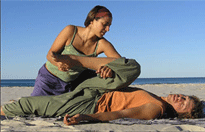
Usually no oil is applied. A full course of Thai massage usually lasts two hours or more, and contains pulling fingers, toes, ears etc., cracking the knuckles, walking on the taker's back, curving the taker's back in a rolling action etc. There is a standard procedure and beat to the massage. Sometimes in a large group massage, the practitioners do the events in unison.
A full massage in Thailand of classically two hours costs around THB 300 (US$ 8 in 2005) depending on place (it might cost ten times more inside a five star hotel).
Note: The traditional therapeutic practice of Thai massage need not be confused with the service of the same name that is accessible in some hotels and brothels.
Trigger Point Therapy :
A trigger point is an area of a muscle, which refers pain sensations to other parts of the body. Trigger Point Therapies apply force to these points leading to instantaneous release of tension and improved muscular functioning. This work is based upon the trigger point therapy study and manual of Dr. Janet Travell.
Sometimes this work is included into other styles of massage therapy such as neuromuscular therapy (NMT).
Balinese Massage :
Combines stretching, long strokes, skin rolling and also palm and thumb pressure techniques. Promotes recreation and a sense of harmony.
Thai Massage :
Firm, dry massage method-uniting attention to Chinese pressure points and Ayurvedan stretching techniques. Stimulates blood flow, releases toxins, and helps healing.
Deep Tissue Massage :
Swedish massage with deeper, straighter pressure concentrating in specific muscle groups. Eliminates deeply fixed tension, releases tightness and reduces muscle pain.
Reflexology :
Traditional massage employs force on the soles of the feet to tempt deep relaxation, get better circulation; combined with fascination of the feet in a cool mineral bath.
Mother-To-Be Massage And Body Treatment :
Natural, hypoallergenic products soothe, cure and protect mother's skin; dry body buff and reassuring lotion restore moisture followed by mild massage focused on falling tension in the back, neck, legs and feet.
In-Room Massages :
At many resorts, preparations could be made to give treatments in the guest's room, if desired.

